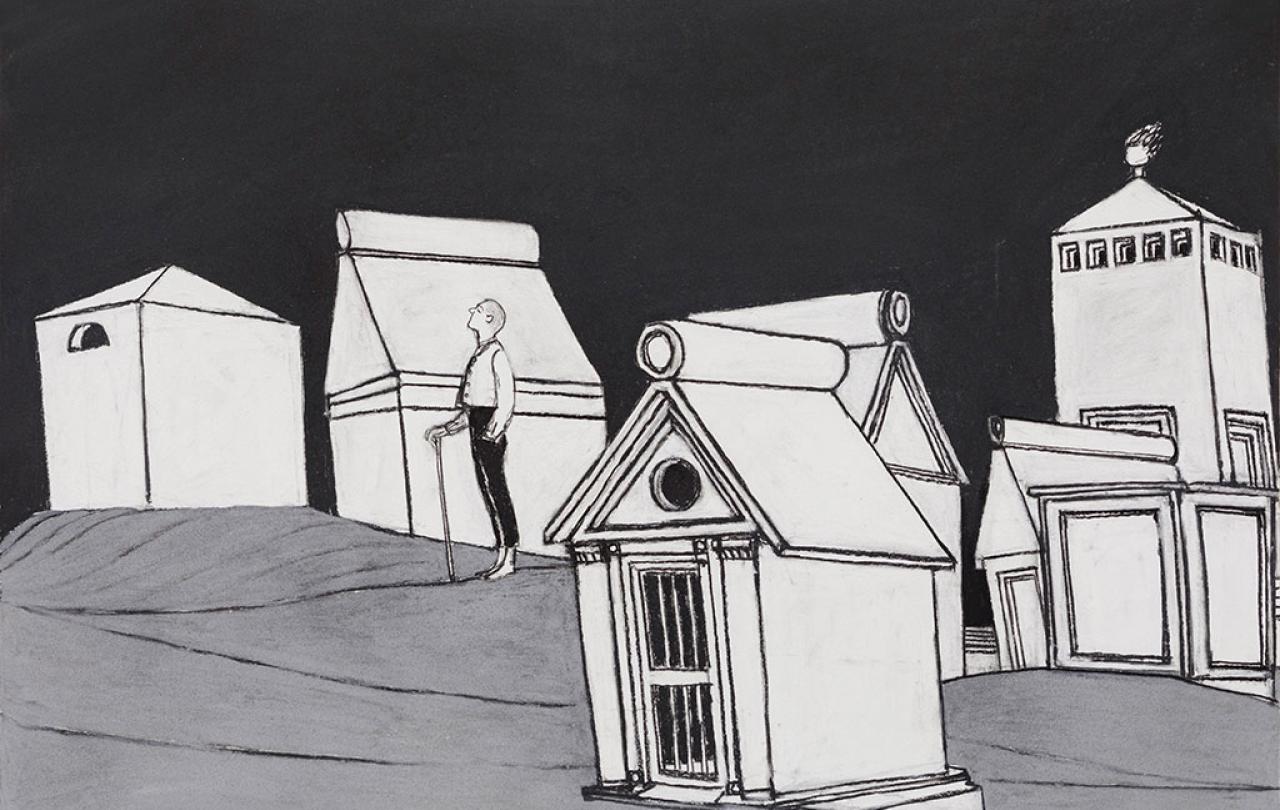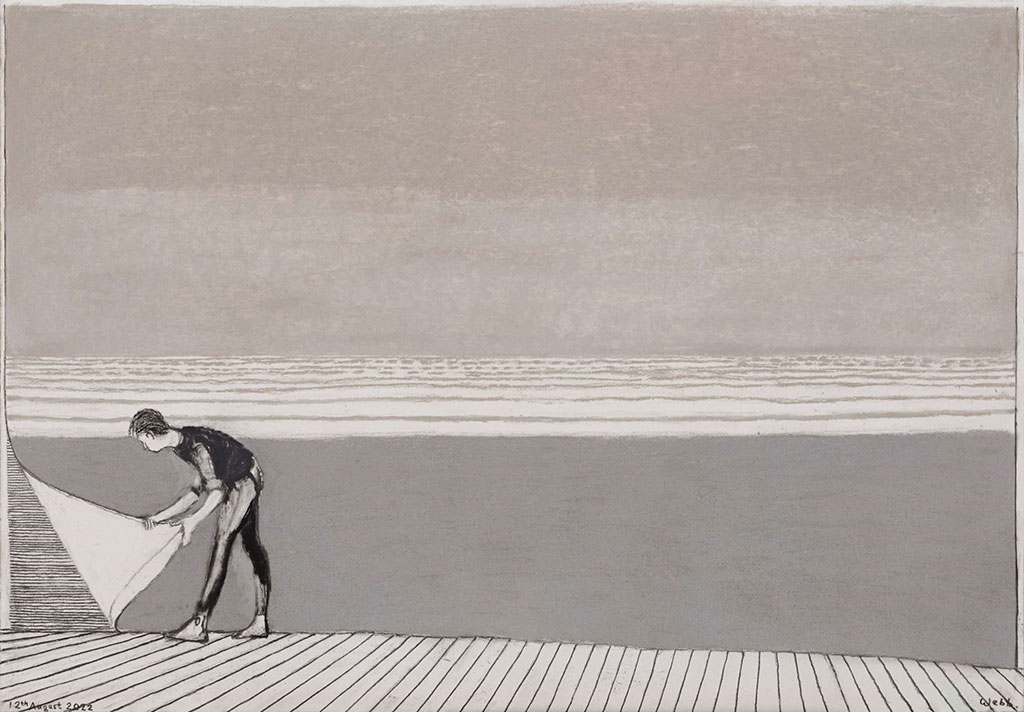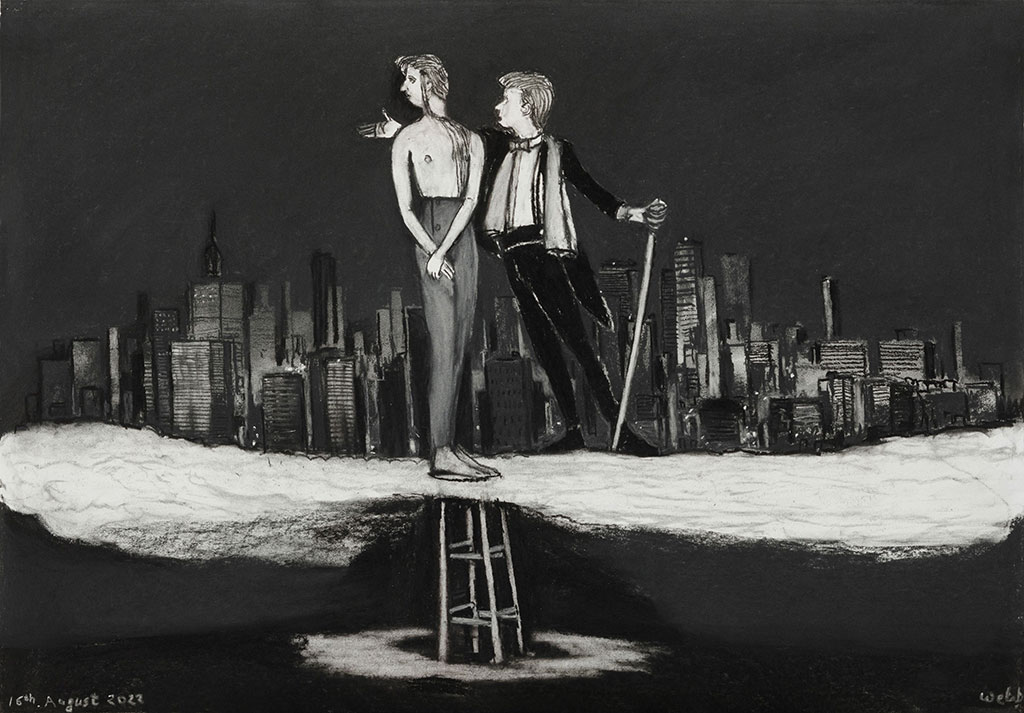
“But also I am shyer than everything would suggest.” It’s genuinely a surprise to hear this early on in my conversation with Neil Atkinson about his new book, Transformer: Klopp, the Revolution of a Club and Culture. Anyone who has heard him speak on The Anfield Wrap podcast, or many of his other media appearances, might soon get this impression that this is a man who thrives off the company of others, something that comes through in the book, too.
Atkinson is so keen to stress the notion that football is meant to be shared with others, that any thought of him being shy really does jar. As if to make my point, when I begin by asking him why he wrote Transformer, he begins the story back in the ’21-22 season, the one he’s “almost got the most fondness for” from Jürgen Klopp’s time as Liverpool manager.
The reason? “The redemption after the season under Covid and the idea of everyone being back together.”
Redemption may end up being the word that best summarises Klopp’s career. An average-at-best footballer himself, he began his managerial career at Mainz 05 where he secures near-miraculous promotion to the Bundesliga in 2004, shortly followed by relegation again. He then moves to Borussia Dortmund, beating presumptive champions Bayern Munich to a Bundesliga title, before the team implodes, prompting Klopp’s resignation in 2015. Later that year, he joins Liverpool, a sleeping giant of European football that finds itself at a remarkably low ebb in its history having narrowly missed out on a long-awaited premier league title in the 2013-14 season. He leaves a much-transformed Liverpool nine years later, having been crowned English champions, European champions, and world champions in the intervening years.
Klopp also seems to relish redemption stories in his squad, too. Jordon Henderson is nearly sold by Liverpool before Klopp arrives; Klopp makes him captain and he lifts nearly every trophy possible. Klopp signs Andy Robertson from relegated Hull FC; along with Trent Alexander-Arnold, they drastically re-invent the attacking fullback role in modern football. Chelsea reject Mo Salah who then joins Liverpool in 2017; under Klopp he becomes one of the best players in the world, and will go down in history as a genuine Liverpool legend.
Klopp loves a redemption story because he loves people, values them, and believes in them. He loves to see people redeemed; at their best.
“Liverpool is also uniquely placed – in the way that, I would argue for instance, Baltimore wasn’t – to be able to be a part of global storytelling, but on a uniquely local basis.”
It’s fitting, then, that Transformer is a book steeped in friendship. In offering his own retelling of Klopp’s nine years as Liverpool manager, the shyer-than-you-might-think Neil Atkinson does so in conversation with the people and places he knows and loves best, and invites you, the reader, to swap in your own. “I’m going to name people and places and they won’t be the same people and places as your people, but that’s fine to substitute; you’ll sort this out. I trust you.”
This was, it turns out, a conscious choice on his part. “I think that too often now in lots of storytelling, the idea of removing specifics is a real shame … I love The Wire. The Wire could only happen in Baltimore and there’s tons of reasons why, but there’s lots of aspects of that could be made more universal, [for example,] literally the way they talk to each other. But there’s great slabs of The Wire where they’re talking about a Baltimore radio station, because that’s the way people speak [there].”
To tell the story of Klopp’s time as Liverpool manager is also to tell the story of the city throughout this time. Bill Shankly once famously said: “I was made for Liverpool, and Liverpool was made for me.” At times it has felt as though no-one has come as close to this as Klopp has. For Atkinson, the city’s particular culture and place in society is part of what makes the football club such a compelling team to follow for many around the world. “Liverpool is also uniquely placed – in the way that, I would argue for instance, Baltimore wasn’t – to be able to be a part of global storytelling, but on a uniquely local basis.”
The language of ‘doubt’, ‘belief’, ‘hope’, and ‘community’ that permeate Klopp’s vocabulary seem to be shaped by the faith and hope he carries with him.
This, in turn, is why Klopp’s story is the city’s story. “All of that, I think, is part of why putting that [locality] central really, really matters. And I think it’s never mattered more, ironically, than while Liverpool have gone through a bit of a global explosion under Jürgen Klopp. Many people are bought in because of what they see happening locally withing Liverpool.”
The story of the city and its people also goes some way to explaining the connection Klopp managed to cultivate with the fans. In his first press conference as Liverpool manager, one throwaway line took on a life of its own and became the motto of Klopp’s tenure: “You have to change from a doubter to a believer.”
When I ask Atkinson why this phrase resonated so much with fans, again the city itself looms large. “I think it’s a city that likes the idea of belief. That’s just there. That’s literally centuries old. I don’t think you just knock that out [out of the city].” But Atkinson is keen to stress the importance of the other part of the phrase: “I think the diagnosis of doubt is actually the reason why it catches … the doubt part’s more important than the believer part, in a way.”
Prior to Klopp, headstrong managers like Brendan Rogers and Rafa Benitez had come close to clinching Liverpool’s first English title since 1990 but, by the time Klopp joins in 2015, a growing contingent of fans became unsure that they would ever see Liverpool lift another top-flight trophy again. Klopp’s awareness of and solidarity with the growing doubt of Liverpool fans, is part of what endears him to them so quickly and is what allows him to lead the fanbase into a position of belief once again.
Despite being a man of deep religious belief himself, Klopp rarely discusses his faith publicly. “So rarely!” Atkinson agrees. “I looked for it, because it's something I like to write about and something I'm intrigued by myself. So, yeah, I looked for it, but there's never enough to hang something onto.”
As Atkinson points out, this isn’t because Klopp is afraid to share his thoughts on non-footballing maters: “He very much let us know what his opinions were on the European Union, and also wants us to agree with him, it’s worth pointing out. He didn't just have opinions on the European Union. He wanted us to agree with them. He didn't just have opinions on the vaccine. He very much wanted us to agree with him. On faith and his relationship with it, he very rarely spoke about it and so at no point has he asked anyone to agree with him.”
Again, the context of Liverpool the city begins to clarify the nature of Klopp’s belief. “And I think he sees it as something that's deeply personal. I think he sees it as something that quite possibly – I would argue, and we don’t know – transcends Church attendance. In the same way that, for instance, we have a sense of the mosque that [Mohammed] Salah and [Sadio] Mane have attended whilst they’ve been here, people in Liverpool talk; but we don't know what church Jürgen was going to. That suggests to me that quite possibly there wasn't one. Because at some point someone would have said ‘he goes to our church’ and that never really happens, unless it's something that is so, so unbelievably private. So, I think that there is something non-conformist and I think he does see it as a personal relationship, first and foremost.”
Despite this, the language of ‘doubt’, ‘belief’, ‘hope’, and ‘community’ that permeate Klopp’s vocabulary seem to be shaped by the faith and hope he carries with him. It’s also one of the things that made him such a compelling voice when he spoke out about some of the difficulties with following football. Whether it’s the overly congested nature of the footballing calendar and the issue of player welfare, the consistent presence of tragedy chanting at football matches, or the awful policing of Liverpool fans at the 2022 Champion’s League Final in Paris, Klopp always seemed able to articulate a better vision for how football, and even society, might operate.
Football supporters are more than one thing.” They are neither angels nor demons; just normal people with a hobby and a passion, and a life beyond their football club.
And so, as the conversation continues, we turn to talk about what it’s like being a match-going football fan. “Let's be clear,” Atkinson says, “there's never been some sort of unbelievably rosy moment to be a match-going football supporter … It's also worth saying that a lot of the people who still romanticize that period [i.e., football’s past] tend – but not always – tends to be white men, for whom that period was easier.”
This isn’t to say that going to football matches is always easy. Atkinson talks about being kept in the ground by police after matches (a pretty common occurrence for away fans), and the small mercy of being allowed to go to the toilet (a less common occurrence). As Atkinson alludes to at the start of our conversation, football under Covid was grim. Despite now being a televised product, games without fans present are simply not as entertaining. And yet there remains an ongoing demonisation of football fans in some sections of public discourse.
All this is perhaps why he is, somewhat despite himself, keen to see Transformer succeed. “I really want the book to be successful. And I'm quite surprised [by that] … But one of the reasons why I want the book to be successful is … [to show] that football supporters are more than one thing.” They are neither angels nor demons; just normal people with a hobby and a passion, and a life beyond their football club.
“One of the things that’s made the most people laugh I ever heard at the match – it’s not some remarkable wit – but we were at [Manchester] United once and there was some fella .. and he was shouting terrible things that were like threats and all sorts of nonsense … and some other fella shouts back in a big scouse accent, ‘Shut up! You’re just an accountant from Altringham!’” If readers get nothing else from Transformer, let it be that most football fans are as banal as accountants from Altringham.
“And that’s why I think the tragedy chanting is actually really quite deeply upsetting because the people that you’re looking at are just the same as you.” If the treatment of football fans – whether by other football fans, or by the police, or by football clubs, or by governments, or by politically-motivated quasi-national organizations – is to get better, this begins by recognizing over and over again, that they fans are just the same as you.
We start to wrap up our conversation by talking about the future for Liverpool, of life without Klopp. “There was a thing that happened last season when I was working on the book,” Atkinson says, “I could feel the dust of nostalgia settle on people in real time, of the thing happening in front of them that they were nostalgic for. And I hated that.”
It’s possible to read Transformer fundamentally as a polemic against nostalgia. It’s not just pointless for Atkinson, but actively damaging. “Nostalgia is, in general, a negative force. It’s a draining force. I genuinely do believe this. It’s a force that takes you out of the present into the past. That’s not necessarily bad, but it sends you into an idealized past, which the present will struggle to compete with.” Part of Klopp’s strength as a person and a manager was in recognizing this: “literally part of what Jürgen did when he was managing was go, ‘Stop being f***ing nostalgic. It’s happening now. You have the match now.’”
Klopp was often such a compelling figure during his time at Liverpool because he was consistently, relentlessly optimistic, occasionally to a fault: “Klopp was a massive cultural force in this country, while being an optimistic, forward-looking, progressive person … but whilst he was that person, Britain went in the opposite direction.”
And herein lies the task of carrying on Klopp’s legacy, both in Liverpool the football club, and Liverpool the city, and beyond. “Part of the challenge [facing society] is to have a message of enjoyment, of joy within it. Anyone who’s not doing that, is not facing that challenge, in any walk of life, is for me, therefore, not dealing with the core challenge … You’ve got to have the positive, progressive, ‘things will get better’ message.” And where does Jürgen draw his hope from, I wonder?
Neil Atkinson's Transformer - Klopp, the Revolution of a Club and Culture will be published on 26th September, by Canongate Books.









